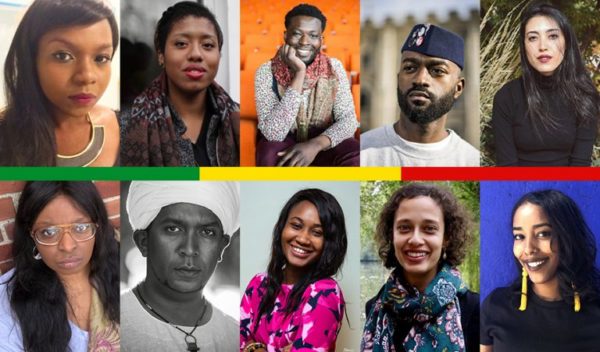
In 2018, Brittle Paper introduced a Brunel Prize Poems Review series, starting with poems on that year’s shortlist. The series returns for the 2019 Prize.
The 2019 Brunel International African Poetry Prize shortlist came with ten poets, most of whose works are truly worthy of the career-making prize. Through varying styles and themes, all the poems have one thing in common: a determination to speak the truths of their realities, which is what good poetry should do. These poems are strong. However, whether they represent the high quality of contemporary poetry by Africans is another question entirely. In fact, a strong argument could be made about subsequent shortlists failing to match that of the 2017 Prize.
Looking at the finalists, one would be forgiven for assuming that the 2019 prize was open only to Africans in the diaspora. It also makes us wonder if there is even such an essentialist idea as “African poetry,” as almost all the poems could have been written in an African-American context. But this is not the time to dwell on that. That is a question to be asked—and, hopefully, answered—on a different day.
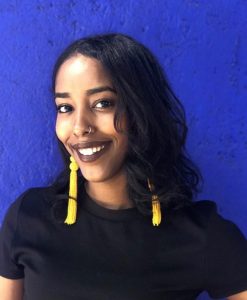
JAMILA OSMAN
Jamila Osman is a Portland-based Somali writer and educator currently working on a memoir.
“Original Sin” | “A Girl is a Sovereign State” | “Folklore”
In a shrill voice, almost lurid in its discomforting realities, before tapering slowly towards silence, Osman interrogates the significance of sound as an emblem of power in a patriarchal world order.
In “Original Sin,” she lays out the hypocrisy in the religious fable of Adam and Hawa, our collective refusal to hold the man responsible for his own indiscretions, placing the blame on the woman for existing. The most resonant part of the poem, however, comes in the final stanzas.
“Every word Hawa spoke,
one he remembered.
Who among us does not suffer
from what Adam forgot?”
Osman shows the erasure of women’s voices throughout history, and the way in which that erasure does a disservice to humanity’s dream of self-actualisation.
This preoccupation with society’s obsession with silencing women is the soul binding Osman’s bodies of thought, the electricity running through her poems. Echoing American poet Muriel Rukesyer’s question—“What would happen if one woman would tell the truth about her life?”—Osman starts “Sovereign State” by promising to tell intimate truths about herself, to split open the silence she has been conditioned to nurture. However, she quickly abandons the voice in which she began the first poem, censoring herself and leaving gaps where truths should reside, muting her voice where it should be loudest. In a tragic turn, she goes back to embracing the silence we have been tricked into jeering as the villain of the story. It feels like a betrayal of the reader’s trust. But in reality, it is a betrayal of her persona, how she struggles to surmount the silencing.
In “Folklore,” Osman acknowledges that there is a problem but does not seem to have an interest in ending it. She just learns to accept it and that voice, that reverberating voice we heard in the beginning dissolves into a distressing quiet. It is classic catastrophe:
“We grew up watching our fathers talk over our mothers
our girl voices reedy unsure evaporating in the light.
Fluent in our mothers’ peculiar alchemy, each time we died we came
back to life.”
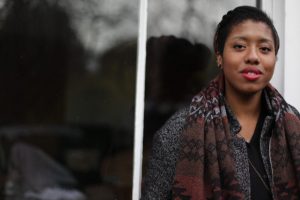
SELINA NWULU
Selina Nwulu is a writer, poet and essayist of Nigerian heritage who is based in London. She has written for The Guardian, New Humanist, and Red Pepper, and has toured her work nationally and internationally. She has also been featured in Vogue, ES Magazine, i-D, and Blavity. The Young Poet Laureate for London for 2015-16, her first chapbook, The Secrets I Let Slip, was published in 2015 by Burning Eye Books and is a Poetry Book Society recommendation. From 2017-2018, she was ‘Writer and Creator in Residence’ at the Free Word centre and Wellcome Trust, looking creatively at food and how it connects to our health and matters of social and environmental justice. She is currently working with Somerset House on a project around loneliness and climate change.
“Too Much” | “Half Written Love Letter” | “Unspeakable Things”
Easily the most audacious poem on the shortlist, “Too Much” comes with brimstone and fire. Despite opening with a quote so lacking in brevity as to become almost inelegant, the poem itself is a fantastic rush of rage. It swaggers towards the war front, letting out a battle cry against the racist forces of the Eurocentric fashion and beauty industries. Filled with punctuations, the words are crafted to lend themselves an air of volatility. They become both message and messenger, the conduit for the anger and frustration with the monopolisation of beauty, able to function perfectly with the author disembodied:
“We’re not hiring any black girls this season too much
sass. bad attitude. jezebel. ink blot. too much chunk.
ratchet. coming for you. too much They just don’t have
the right aesthetic. too much spice. thick lip. nappy knot.
ink blot. baartman bounce…”
“Love Letter” accentuates how the immigrant makes home of foreign lands. The immigrant plants herself into its soil and becomes one with the land. But she is soon reminded that she does not belong there, that the land she has spent her whole life assimilating into isn’t really herself to claim. While the topic of the immigrant experience has almost become monotonous at this point, and even with Nwulu not adding any fresh perspective, the poem still stands on its own merit. It situates the experiences within the very specific context of the persona’s reality, lending it a semblance of private truth.
In “Unspeakable Things,” a health crisis leads to a brief rumination on the agony of lost love. It is muted yet resonant. With the gory details of the body’s failing laid out with such indifference, the persona’s pain is rendered familiar. That makes it all the more tragic—to get so used to your body’s failing health that it does not surprise you anymore:
“The physio has stopped asking me
how I am. My pithy platitudes only
make mockery of the chaos
she has found raw in my body.
Every week she finds new ways
to massage unspeakable things
out of my frame.”
ABOUT THE REVIEWER
 Kanyinsola Olorunnisola is a poet, essayist, and writer of fiction. He writes from Ibadan, Nigeria. His debut poetry chapbook, In My Country, We Are All Crossdressers, was released by Praxis Magazine. He is the founder of the literary movement, SPRINNG: Society for the Promotion, Revitalization, and Improvement of the New Nigerian Generation. He loves experimental literature, pop culture, and Nigerian jollof rice.
Kanyinsola Olorunnisola is a poet, essayist, and writer of fiction. He writes from Ibadan, Nigeria. His debut poetry chapbook, In My Country, We Are All Crossdressers, was released by Praxis Magazine. He is the founder of the literary movement, SPRINNG: Society for the Promotion, Revitalization, and Improvement of the New Nigerian Generation. He loves experimental literature, pop culture, and Nigerian jollof rice.


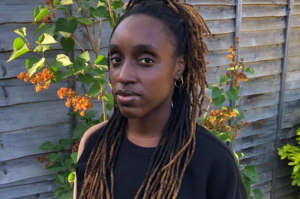



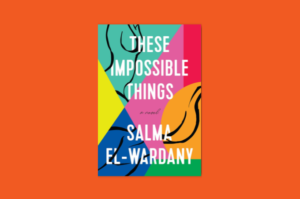


COMMENTS -
Reader Interactions